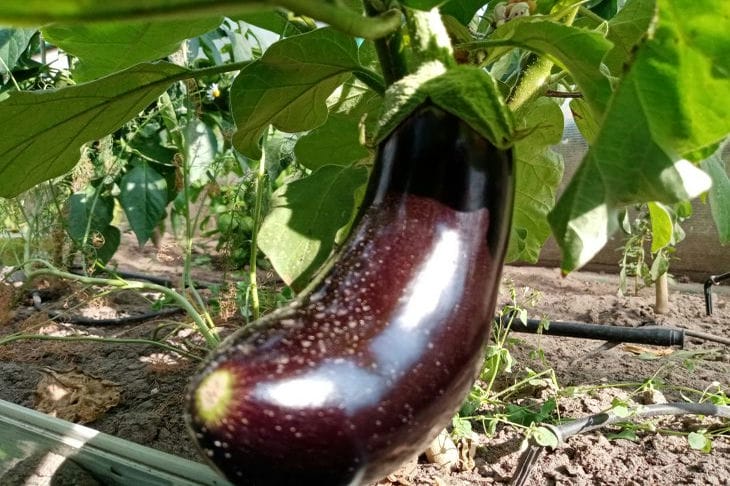Why Eggplants Drop Fruit: Revealing the Secrets of the Little Blue Capricious
Eggplants are a crop that requires special attention and care.
Many gardeners are faced with the problem of ovaries and young fruits falling off.
This phenomenon can significantly reduce the yield and cause disappointment among gardeners. What are the reasons for such behavior of eggplants?
Lack of moisture
One of the main reasons for eggplants dropping fruit is insufficient watering. These plants are very demanding of soil moisture.
During drought, they try to preserve their vitality, getting rid of the extra load in the form of ovaries and young fruits. Regular and abundant watering is especially important during the flowering and fruit formation period.

Temperature changes
Eggplants are heat-loving plants and are sensitive to sudden temperature fluctuations. Cold nights or sudden cold snaps can cause the ovaries to fall off.
The optimum temperature for the growth and development of eggplants is 22-28°C. When the temperature drops to 13-15°C, the plants begin to experience stress, which can lead to crop loss.
Nutrient deficiencies
Lack of nutrients in the soil is another common reason for eggplants to drop fruit.
Phosphorus and potassium are especially important for the formation of ovaries.
A deficiency of these elements can lead to the plant not being able to provide nutrition to all the ovaries that have formed and will start shedding them. Regular fertilizing with complex fertilizers will help solve this problem.
Excess nitrogen
Paradoxically, excess nitrogen fertilizers can also cause ovary shedding. With excessive nitrogen nutrition, the plant begins to actively build up green mass to the detriment of fruiting.
It is important to maintain a balance of nutrients and not get carried away with nitrogen fertilizing, especially during the period of fruit formation.
Insufficient pollination
Eggplants are self-pollinating plants, but they require the help of insects or wind to set fruit better.
In greenhouses or under adverse weather conditions, pollination may be insufficient. In such cases, gardeners can help the plants by artificially pollinating them with a soft brush or by gently shaking the flowers.
Diseases and pests
Various diseases and pest attacks can significantly weaken the plant, which will lead to the shedding of ovaries.
Late blight, verticillium wilt, spider mites – all these problems can cause crop losses. Regular preventive treatments and careful inspection of plants will help to identify and solve these problems in time.
Planting density
When plants are placed too close together, they compete for light, moisture and nutrients.
As a result, eggplants may shed some of their ovaries to ensure normal development of the remaining fruits. It is important to follow the recommended planting pattern and thin out the plants in a timely manner.
Incorrect bush formation
Eggplants need proper shaping to get a good harvest. Excess leaves and shoots can lead to insufficient nutrition of the ovaries and their falling off.
Timely removal of excess shoots and proper pinching will help the plant concentrate its energy on forming fruits.
Transplant stress
Young eggplant plants are sensitive to transplantation. If this procedure is carried out incorrectly or at the wrong time, the plant may experience stress and drop its first ovaries.
To minimize stress, it is recommended to transplant using the transshipment method, preserving the root ball.
